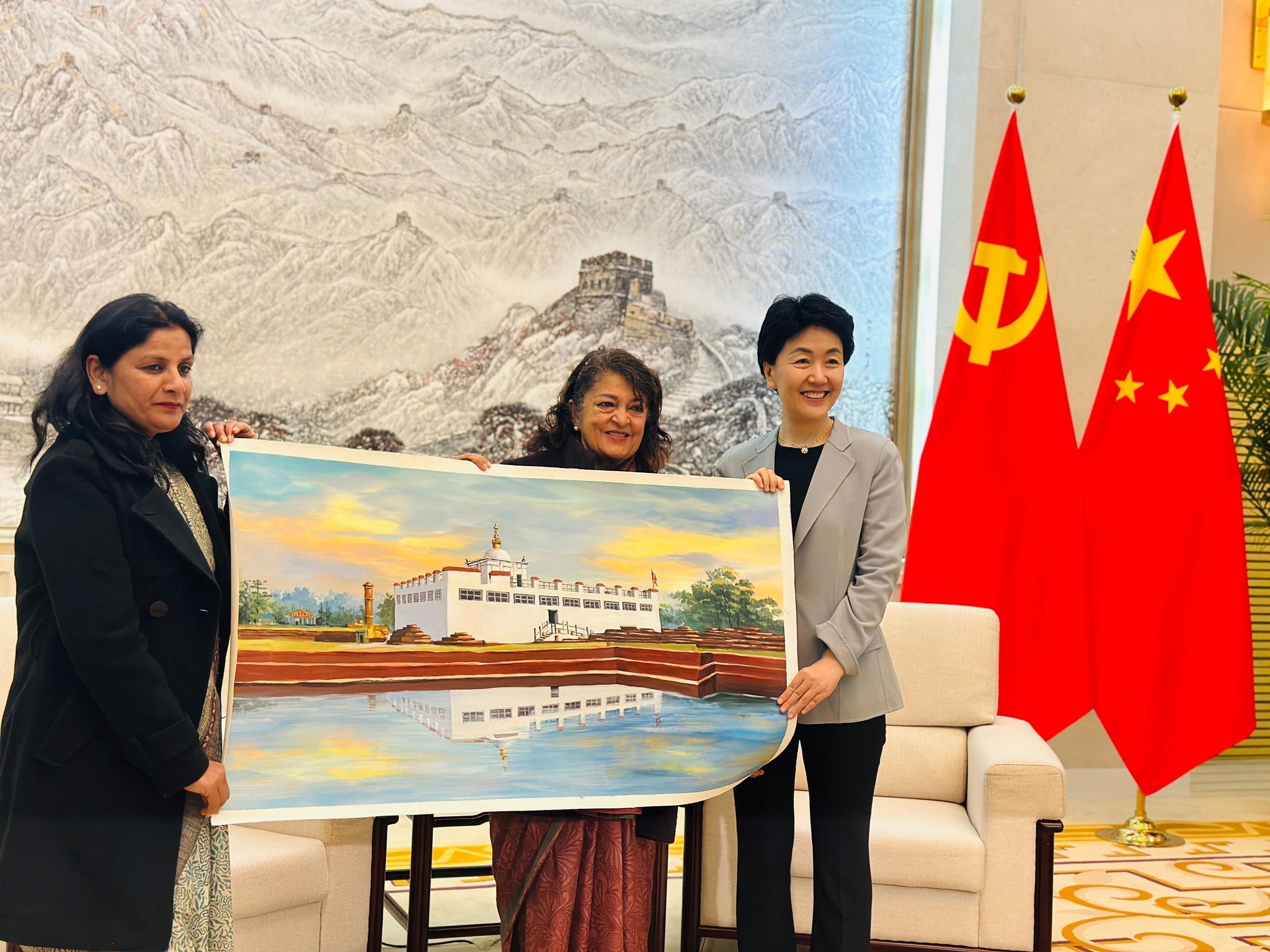Sujata Koirala’s China Turn: Calls Strong Nepal-China Ties a ‘National Consensus’

In a striking interview with Global Times, Sujata Koirala—senior Nepali Congress leader and former Deputy Prime Minister—has unequivocally aligned herself with Beijing’s vision for South Asia, calling long-term cooperation with China a “national consensus” that transcends party lines in Nepal. Her remarks, made following an official visit to China in March, underscore a deeper political inclination that could reshape regional equations.
Speaking warmly of the Chinese Communist Party’s governance model, Sujata praised China’s rapid economic growth, technological prowess, and developmental strategy as “inspirational” for Nepal. She described China not only as a "reliable development partner" but also as a model for South Asia’s transformation.
“Under the CPC's leadership, China has achieved significant milestones. Nepalese people admire that,” she said. “Many view China as a key partner for our own national development.”
Sujata’s delegation was invited by the International Department of the Communist Party of China—a gesture often seen as a marker of strategic courtship. She responded in kind, expressing commitment to intensifying bilateral cooperation in infrastructure, trade, and connectivity under the Belt and Road Initiative (BRI).
Her statements reveal a marked shift from traditional non-aligned caution to strategic proximity with China. She hailed cross-border railway projects and hydropower investments as evidence of evolving relations from “traditional friendship” into “a comprehensive strategic partnership.”
“Projects like the Pokhara International Airport gain momentum that even oppositions hesitate to reverse,” Sujata said, highlighting the bureaucratic entrenchment of Chinese-supported infrastructure.
She outlined three pillars sustaining Nepal-China cooperation: project continuity, elite political consensus, and provincial-level engagements, noting that even Nepal’s seven provinces have begun forging ties with Chinese provinces like Xizang and Yunnan.
This vision goes beyond the usual rhetoric. Sujata seems to propose a realignment of Nepal’s development path with Beijing, at a time when the United States’ Millennium Challenge Corporation (MCC) faces setbacks and increasing suspicion. She subtly contrasted China’s consistency with the uncertainty now surrounding U.S. assistance—after Washington suspended key aid programs earlier this year.
While Sujata reiterated Nepal’s formal commitment to non-alignment, she suggested that balancing China and India’s interests should include more Chinese infrastructure and Indian market access—while being wary of external powers drawing Nepal into strategic traps.
“We do not want to be a pawn,” she emphasized, adding that Nepal can become a cooperative hub for both Chinese and Indian investments in technology and pharmaceuticals.
Sujata also advocated for Nepal to learn from ASEAN's strategy in Southeast Asia by strengthening SAARC, resisting single-power dominance in South Asia.
Her comments have stirred debate in Kathmandu’s political circles, especially within her own party. While the Nepali Congress has traditionally maintained closer ties with Western democracies and India, Sujata’s warm endorsement of Beijing may signal a factional reorientation—or a bid for greater influence in Nepal’s post-MCC foreign policy direction.
Whether her remarks reflect personal positioning or a broader party shift remains to be seen. But one thing is clear: Sujata Koirala has made her pivot to China unmistakably public.
“China is our neighbor, close friend, and reliable development partner. It is natural to look to China to fill gaps or expand cooperation,” she concluded.
Analysis: Sujata Koirala’s tilt toward China is not just symbolic—it articulates a possible future where Nepal’s strategic center of gravity slowly leans northward. With uncertainties clouding US engagement and India’s dominance often contested, China appears poised to deepen its hold, not just through infrastructure, but through ideas, partnerships, and now, political voices like Sujata’s.
Sujata Koirala
![From Kathmandu to the World: How Excel Students Are Winning Big [Admission Open]](https://nepalaaja.com/img/70194/medium/excel-college-info-eng-nep-2342.jpg)
